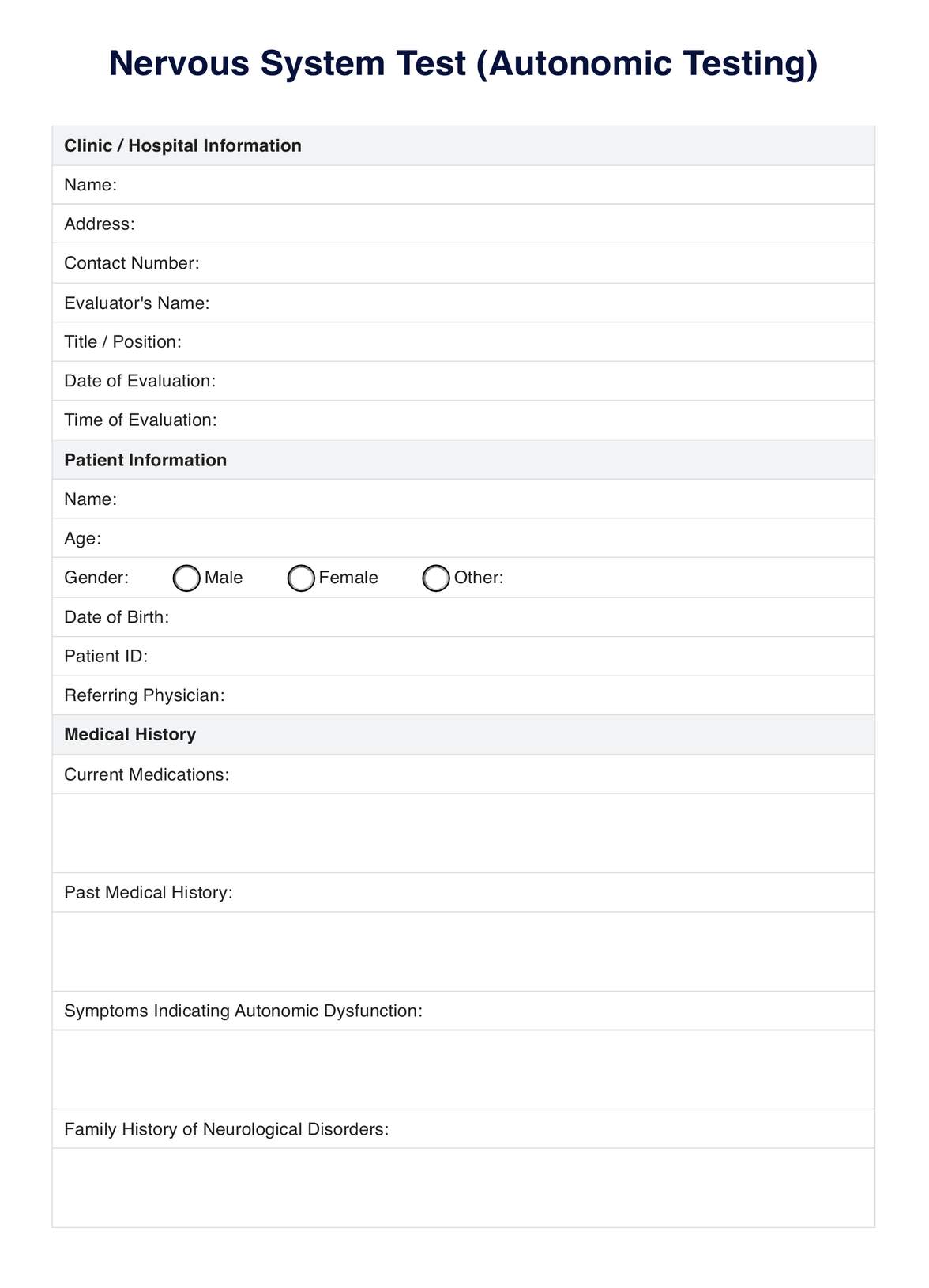Autonomic testing can diagnose various conditions, including autonomic neuropathy, syncope, and dysautonomia.

Nervous System Test (Autonomic Testing)
Explore the benefits of autonomic testing for nervous system disorders, enabling early detection, targeted treatments, and personalized care.
Use Template
Nervous System Test (Autonomic Testing) Template
Commonly asked questions
Most autonomic tests are non-invasive, focusing on measuring the body's responses to different sensory stimuli rather than internal examination.
Preparation can vary, but generally, patients may be advised to avoid certain medications, caffeine, and nicotine, which can affect test results.
EHR and practice management software
Get started for free
*No credit card required
Free
$0/usd
Unlimited clients
Telehealth
1GB of storage
Client portal text
Automated billing and online payments











